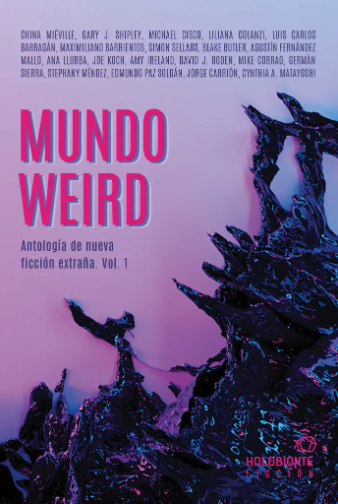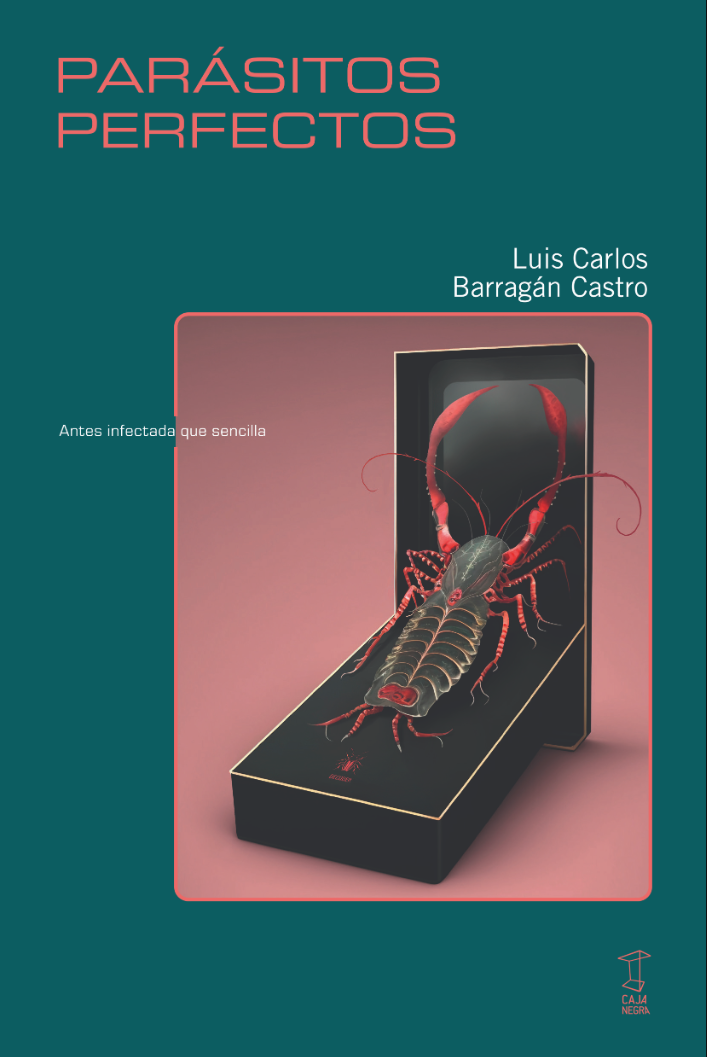👍 Parásitos Perfectos de Luis Carlos Barragán.
🇺🇸 Click here to read this article in English.
No hay nada que disfrute más que ver al universo conspirar para que me tope con algo que me entusiasme e inspire a crear.
El libro Parásitos Perfectos de Luis Carlos Barragán Castro es una de estas conspiraciones.
En uno de los tantos paseos aleatorios por el Unicenter Shopping entramos en Yenny para "ver si hay algo". Nunca hay nada.
Excepto esta vez.
Una tapa estilo synthwave captó mi atención.
Era el libro Mundo Weird: Antología de Nueva Ficción Extraña. Al echarle un vistazo me gustó que tuviese autores latinoamericanos, no sólo yankees o europeos, así que lo compré.

Entre estos cuentos, mi preferido fue Amor de Gulgumbro. Una suerte de mundo poblado por tamagochi/pokemon extradimensionales con intensiones un tanto oscuras. Para mí, ese cuento es la metáfora perfecta a lo que yo siento que son las redes sociales, de ahora en más cuando me pregunten, voy a hacerles leer este cuento.
En fín, me quedó el nombre de Luis Carlos Barragán abierto en un tab mental, que volvió a aparecer unas semanas después, justo días antes de la Feria del Libro, cuando Caja Negra publica Parásitos Perfectos. Lo compré sin más, por consejo de Nassim Taleb: lo importante es exponerse. En el peor de los casos gastaste unos pesos, en el mejor encontras algo que te cambia la vida. Y en este caso, fue lo segundo.

No hubo un sólo cuento que me diera lo mismo (cosa que me suele pasar en compilaciones de este estilo, uno o dos cuentos valen la pena, el resto meh). La forma en que Luis Barragán maneja el ritmo, la acción, la emoción y la rareza hacen de este libro una joya del "género" si es que hay uno.
Para poder decir todo lo que me gustó del libro tendría que spoilear la mitad de las cosas, así que sólo voy a decir que, al menos para mí, es un antes y un después en la ficción especulativa latinoamericana.
Como escritor está claro que Luis utiliza su trasfondo como artista visual y logra en forma muy efectiva evocar imágenes a veces perturbantemente precisas de lo que está sucediendo en la historia. Además de tiene una sensibilidad queer que le quita la dureza masculina que suele tener la ciencia ficción. Es un combo que a mí me convirtió en fan de inmediato.
Tuve la oportunidad de asistir a dos charlas que dió Luis en Buenos Aires durante el FILBA, y ambas fueron muy interesantes. Abrieron un poco mi capacidad de interpretar las temáticas del libro, sobre todo el hecho de que Luis utilizó la Soledad como tema principal durante sus estudios de artes visuales. Esto se ve reflejado en prácticamente todos los cuentos de Parásitos Perfectos, donde de una forma u otra, el motor de casi todo comportamiento es la soledad (o mejor dicho, el escape de la soledad). Incluso el último cuento del libro culmina un arco sobre la Soledad en una escala cósmica que es para sacarse el sombrero.
Ahora voy a ver cómo hago para conseguir las novelas anteriores de Luis, y espero con ansias lo próximo que haga, en especial si es en ficción interactiva 😉😉.
En fín, dejá de mirar Netflix y pedí el libro acá. No hay affiliate link ni ninguna de esas estafas de influencer, sólo un gran aprecio por Caja Negra por haber editado semejante libro ❤️.